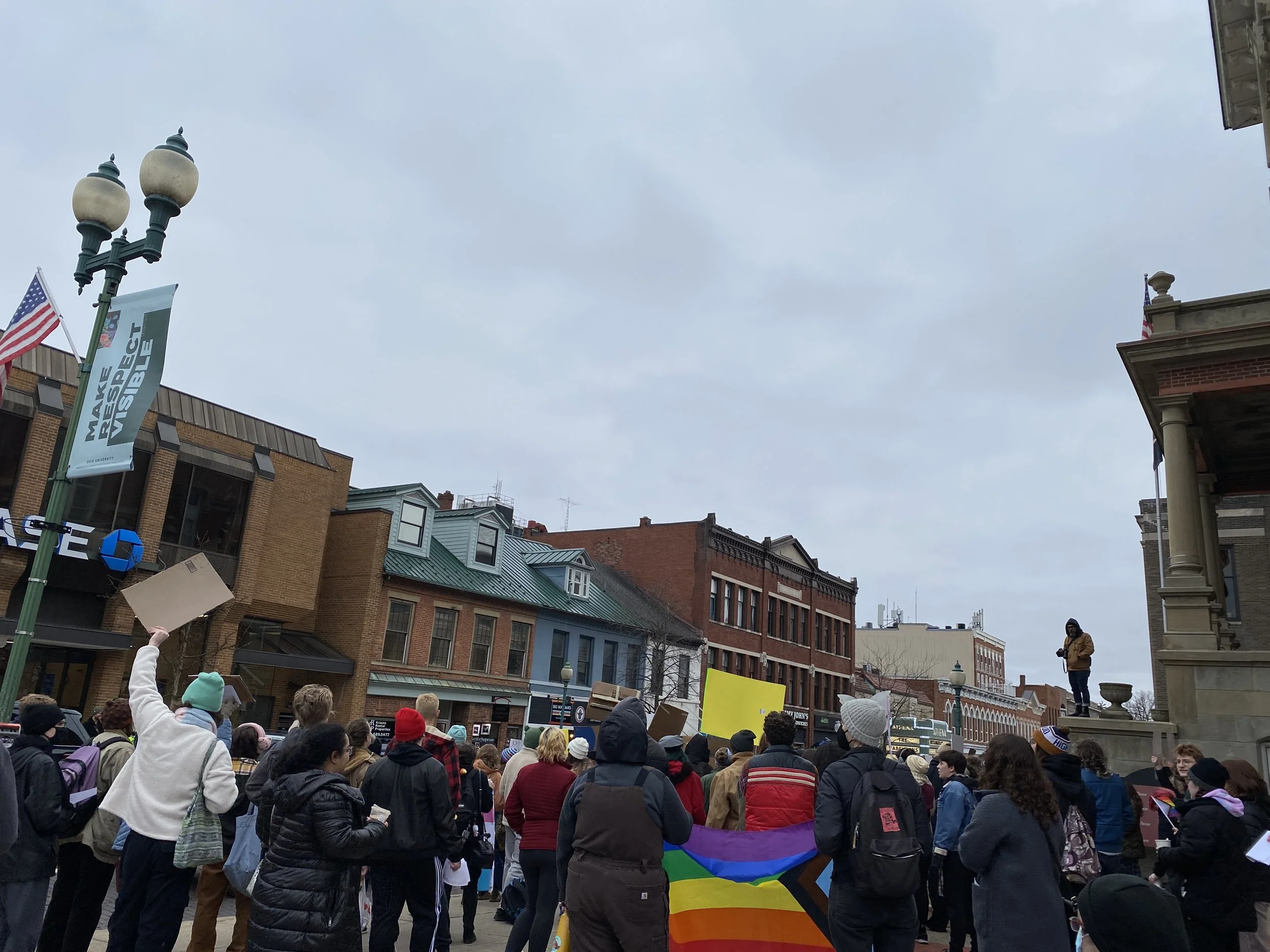OPINION: Marginalized groups don’t have the same social freedom as white men
Photo via: Claire Del Vita, The New Political
Olliver Hunt, a freshman studying Journalism, discusses the difficulties in reconciling relationships and politics, particularly for marginalized communities.
Society is at a crossroads in figuring out if it’s okay to have friends who are okay with electing officials who want to take away our rights or not. The truth is, it entirely depends on who you are and how those politics affect you.
White, cisgender, Christian men are the epitome of privilege. This election, they do not have to worry about whether or not the nation will regulate their body or if they will be able to marry their spouse in a few years. They don’t have to worry about their citizenship status in a few months, even if they were born here. And yet, they constantly preach that severing friendships over politics is stupid.
In reality, they have not had to face a lifelong friend voting for the candidate or policy that risks your rights. There’s a difference in having contrasting opinions on the economy and transgender rights. Your friend or acquaintance could benefit from these rights and freedoms.The destruction of these rights and freedoms could impact your friend’s quality of life.
Reproductive rights were one of the top issues in each candidate’s campaigns this election, following the overturning of Roe v. Wade, a decision that President-elect Donald Trump takes proud responsibility for.
Reproductive rights don’t affect white cisgender men. They will not see direct impact from the protections or restrictions on abortion, IVF treatment, and other healthcare in danger. So, it’s easier for men to ignore the views of their friends and acquaintances. You can imagine how difficult it is for a person directly affected by these laws and policies to get along with those who wish to control a woman’s uterus.
The same goes for people aligned with the LGBTQ+ community. Their rights and freedoms are greatly debated nationwide, especially within the presidential race. It shouldn’t be the topic of debate with your friends at a bar on a Saturday night. Some find it inhumane to elect a leader with promises to rework human rights and, for them, it becomes unfathomable to hold relationships with those who endorse or vote for him. Trump has spoken many times about his plans to restrict transgender rights.
As a member of the LGBTQ+ community, my heart hurts for those who will lose relationships because of the dangers of hearing all of the hate. My heart hurts for those who must sever ties with their friends who will not support them in lieu of Trump’s policies. I, in good standing, cannot stand by while friends of mine vote for and back the concepts of plans and ideas that Trump has for the LGBTQ+ community. I cannot watch as friends debate the importance of the protections of my rights within America. I will participate in bipartisan debate, but I will not debate my own right to existence or the right to existence for other humans.
Now, do not get confused. It is not easy to cut off friendships based on politics, and I am not telling you that you must do this. The point is to help you understand why it is unfathomable for some to have such social freedom. There’s a lot of generalization that comes with categorizing Republicans and Democrats, but the main issue I hold is the level of okay-ness those voters have with the candidate who has held such harsh civil rights opinions. I want to make it clear that I am in no way trying to lump conservatives into one area. The leader of the party, President-elect Donald Trump, has something to say about many different minority groups.
Following the election, with the victory going to the former president, an influx of fear-mongering and anxiety about the four years to come have been expressed by minorities across America. The response on social media has been polarizing. Those who are upset about the results mourn and those who are happy celebrate almost violently. Often on social media, we see a lack of empathy for those scared. It’s hard to watch as previous friends and acquaintances cheer for a leader with such an agenda.
The most important thing to take away from this is it is entirely up to you how you exercise your social freedom. While others will close their circles, others may open theirs. Having a bipartisan social circle can be healthy until it isn’t. We must hold space for those who cannot afford it.

